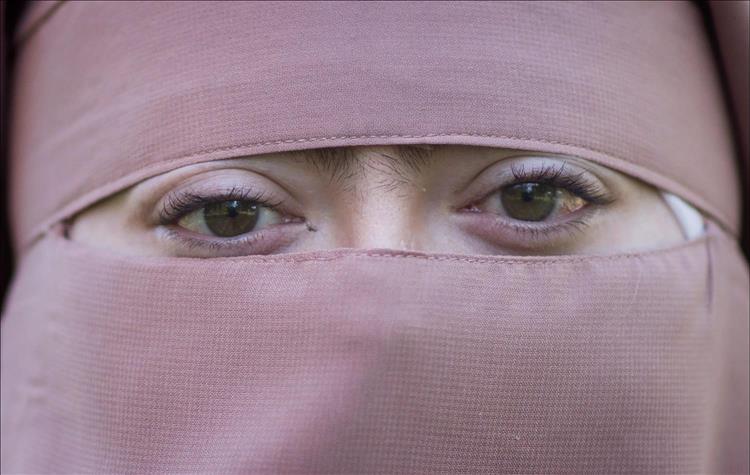
The link between Quebec's niqab law and its sovereignty quest
As I began immersing myself in the literature (and a lot of poutine, the gooey Quebec dish that is catching on around the world), my new topic and province found themselves at the heart of a nationwide controversy. This time with Bill 62.
The personal introduction is to let you know that I'm not from Quebec. So you know that this isn't an old-stock Quebecois telling the world how to feel about la belle province.
But I'm a historical sociologist, and it's my job to make sense of this puzzle: Why is Quebec seeking to develop a tougher approach than the rest of Canada toward minority religions?
And my answer has to go beyond simply scorning the province as 'shameful' and 'nativist' like the did.
The reality is indeed more complicated, and it's closely related to this single line in the : 'Quebecers of French-Canadian ancestry are still not at ease with their twofold status as a majority in Quebec and a minority in Canada.'
It's this very twofold status that caused policy-making toward religions in Quebec to become another way of asserting sovereignty.
Sovereignty by other meansSovereignty has three pillars: Economic, political and cultural. Since the Quiet Revolution of the 1960s, Quebecois identity has been built on this trio. Despite the province's remarkable achievements to build a nation, the pillars received major blows over the years.
First went the idea of economic sovereignty. Prevalent in the 1960s and '70s, Quebec's economic ideals of protectionism and state-led development caved in the face of globalization.
Second, political sovereignty did not bear fruit given the defeat of referendums in 1980 and 1995. In a , three-quarters of Quebecers said the province should now remain within Canada.
The weakening of the first two pillars, however, has led to an over-emphasis on cultural sovereignty. Economic protectionism and political independence are no longer powerful mobilizers of Quebec identity. But cultural autonomy is. In a , 86 per cent of Quebecers stated that 'Quebec culture needs protection.'
And along with the French language, secularism and Catholicism are core cultural values for Québec. Yes, both of them, as odd as that might sound.
Understanding Catho-laïcitéAs the title of a Globe and Mail suggests, Quebecers are 'neither practising nor believing, but Catholic even so.' Only six per cent attend mass, belief in God is the , but 80 per cent declare themselves Catholic. Confused?
This Catho-laïcité (secularism with Catholic partialities) is due to a history of a love-hate relationship with the church.
On the one hand, nationalism since the 1960s developed in rejection of the church's authority in public life. Secular skepticism of religion has thus been an essential Quebecois tradition.
On the other hand, Catholicism has always represented a distinctive cultural marker to hold on to against largely Protestant English Canada. And now, it's a cultural marker in the face of newcomer religions.
Sociologist the 'patrimonialization' of Catholicism in Quebec, whereby its 'symbols, artefacts, and practices are being secularized and re-sacralized as secular elements of the nation and its history.'
That explains why days after passing Bill 62 on religious neutrality, the government hanging in the Quebec provincial legislature since 1936. The minister of culture said that the crucifix 'is above all a patrimonial symbol … There's a history behind it.'
But it's not religious. God forbid.
Where do we go from here?This complex history may help us understand Quebec's niqab bill. By restricting the public visibility of minority religions, Quebec is in search of affirming its sovereignty. This time, it's cultural.
And although recently complicated by Catholic 'patrimonialization,' such affirmation is parallel with the province's trajectory of religious skepticism. The may rest on a combination of these historical factors.
None of this is to rationalize Bill 62. Personally, I'm against it. After 2014's mess, the Parti libéral du Québec had a rare opportunity to bring the decade-long reasonable accommodation issue to a peaceful close. By unnecessarily targeting Muslim women, an already marginalized group in the province, Article 9 of Bill 62 has just done the opposite.
And it just opened a bigger can of worms.
The main opposition Parti Québécois declared that they're retorting with a involving a complete ban on face-covering in public, and on religious symbols for public employees in positions of authority. The second opposition party Coalition avenir Québec said they would support these measures.
Less than a year before the provincial election of October 2018, one thing is certain: Tenser debates on Quebec's cultural sovereignty are in order.
And I will be here trying to make sense of it all. While eating poutine.

Legal Disclaimer:
MENAFN provides the
information “as is” without warranty of any kind. We do not accept
any responsibility or liability for the accuracy, content, images,
videos, licenses, completeness, legality, or reliability of the information
contained in this article. If you have any complaints or copyright
issues related to this article, kindly contact the provider above.


















Comments
No comment